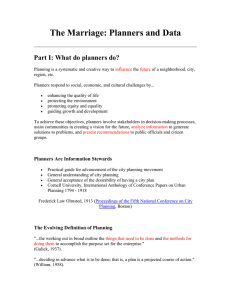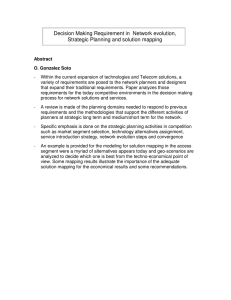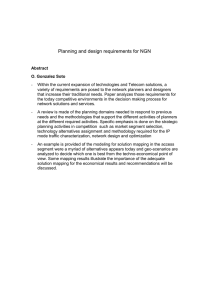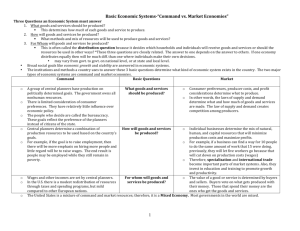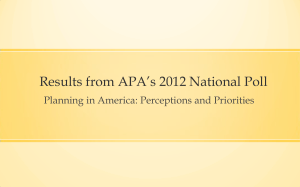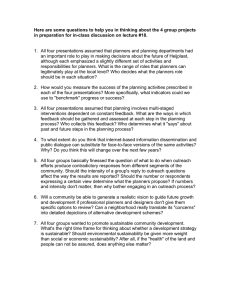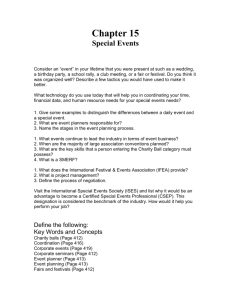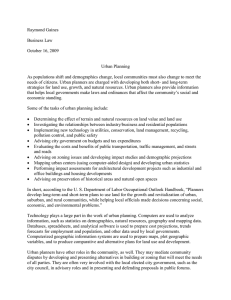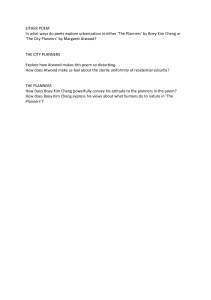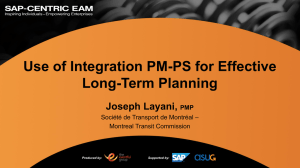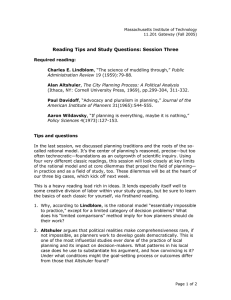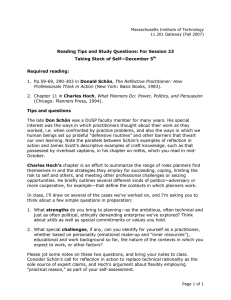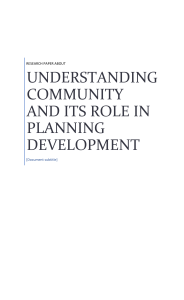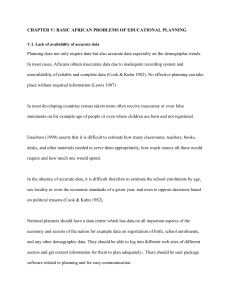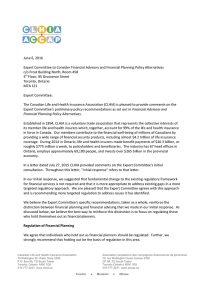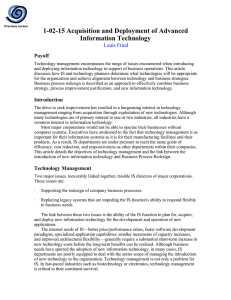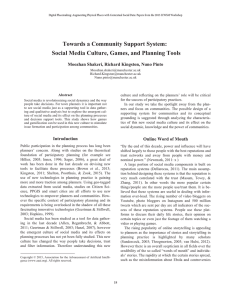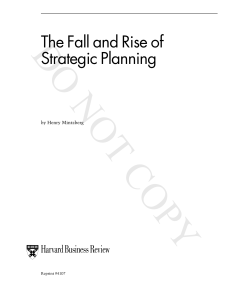Planning Practice: An Overview
advertisement
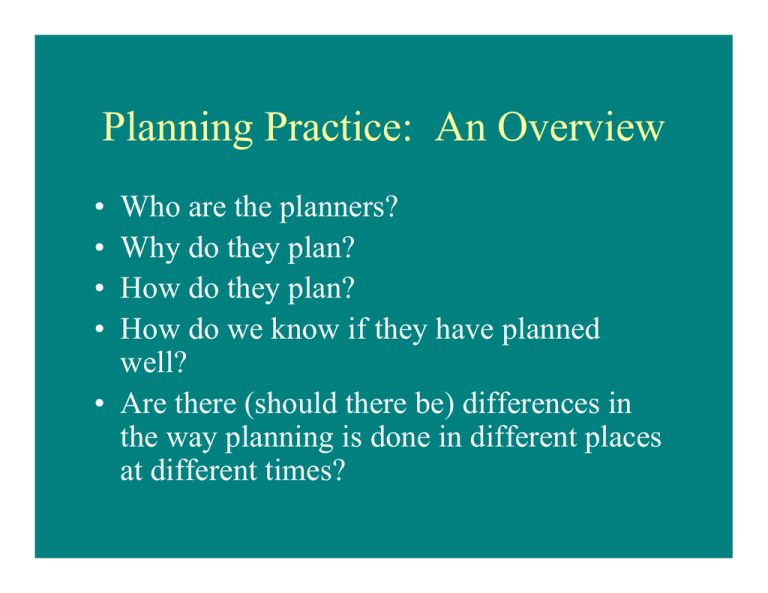
Planning Practice: An Overview • • • • Who are the planners? Why do they plan? How do they plan? How do we know if they have planned well? • Are there (should there be) differences in the way planning is done in different places at different times? Who Are the Planners? • Professional planners with job titles that say planning • Professionals who plan but do not have job titles that say planning • Non-professionals who plan (particularly grassroots activists) • Non-professionals who shape what is planned (by stopping or changing what professionals have in mind) Why Do They Plan? • To realize the goals and objectives of elected and appointed officials • To respond to concerns expressed by individuals and groups • To correct for market failures • To take advantage of opportunities as they emerge • To ensure greater efficiency in public investment (particularly through coordination and leverage) • To ensure greater fairness How Do We Know If They Have Planned Well? • The stakeholders (All? Some? A Majority?) are satisfied • The process was efficient (saved time and money given the tasks and the options) • The outcome was efficient and sustainable (No Waste? Pareto Optimal? Gains to the Gainers Outweigh Losses to the Losers?) • Relationships enhanced (Easier to Deal with Each Other in the Future?) • Confidence in government/institutions enhanced Should There Be Differences in the Way Planning is Done? Planning should be culturally sensitive and responsive to the unique demands of each time and place (What Does That Mean?) Professional planning should be governed by universal norms of “best practice” (How should these be defined?) Planning practice should be governed by broad general principles of fairness, efficiency, accountability, and technical “excellence,” but these must be defined anew in each situation (How?)
